

EXPLORE BY TOPIC:
  Our top 10 resources
Our top 10 resources
  Childhood / Early Life
Childhood / Early Life
  Chronic Stress
Chronic Stress
  Education
Education
  Food Security
Food Security
  Genetics
Genetics
  Jobs & Work
Jobs & Work
  Housing / Neighborhoods
Housing / Neighborhoods
  Income & Wealth
Income & Wealth
  Race / Racism
Race / Racism
  Social Inclusion
Social Inclusion
  Policy & Change
Policy & Change





Buy the DVD
e-Newsletter
FAQs
Contact Us
Site Map
Home

|
 |


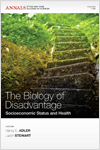 Evaluating the evidence base: Policies and interventions to address socioeconomic status gradients in health Evaluating the evidence base: Policies and interventions to address socioeconomic status gradients in health 
William H. Dow, Robert F. Schoeni, Nancy E. Adler, and Judith Stewart This piece discusses the current evidence base for policies that could address socioeconomic status (SES) health gradients in the United States. Given the difficulty in developing randomized evidence for many types of interventions related to social determinants of health, the authors argue for conducting policy analysis by combining breitling kopia information on best available theory and evidence regarding probable health benefits and costs of an intervention, providing a framework that also incorporates the probable costs of inaction. The second half of the piece adopts a ladder metaphor to classify policies and interventions that could reduce SES gradients in population health. |
 |
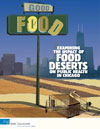 Examining the Impact of Food Deserts on Public Health in Chicago (pdf) Examining the Impact of Food Deserts on Public Health in Chicago (pdf) 
REPORT by Mari Gallagher Research & Consulting Group for the LaSalle Bank, 2006
This report looks at the effects of "food deserts" (areas with minimal access to grocery stores) on the health of residents in Chicago's neighborhoods. The study develops an empirical score to quantify the balance of food choice (groceries vs. fast food outlets) available to residents, and compares food access and food balance directly to health outcomes, holding constant education, income, and race. They find that African American communities are especially likely to have poor balance of food choice, and that residents of these "food deserts" suffer noticable health effects.
Swiss made 1:1 cheap rolex replica uk watches Shop Sale
Shop around. The Swiss cheap replica cartier uk with high quality are here. Read more details if you want. |
 |
Expanding The Boundaries - NACCHO 2014 
The central theme of Expanding the Boundaries: Health Equity and Public Health Practice is that health equity practice should consider the underlying social inequalities that are the root of health inequities, rather than only their consequences. |
 |
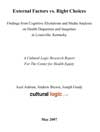 External Factors vs. Right Choices (pdf) External Factors vs. Right Choices (pdf) 
REPORT from CulturalLogic, May 2007 Subtitled "Findings from Cognitive Elicitations and Media Analysis on Health Disparities and Inequities in Louisville, Kentucky," this report examines how popular opinion tends to focus on personal responsibility for health outcomes, and provides insight into how to effectively communicate and encourage understanding of a social determinants / environmental frame.
Also available, a research brief and user's guide with more guidance on using the study's findings. |
 |
 Fair Growth 2020: A Tale of Four Futures Fair Growth 2020: A Tale of Four Futures 
ARTICLE by Lance Freeman, House Facts & Findings, 2000 What will America look like in 2020, given the steady decline of our central cities and our unchecked suburban expansion? In this 2000 article, author Lance Freeman looks at four possible scenarios for the future, and their implications for urban sprawl and social equity. |
 |
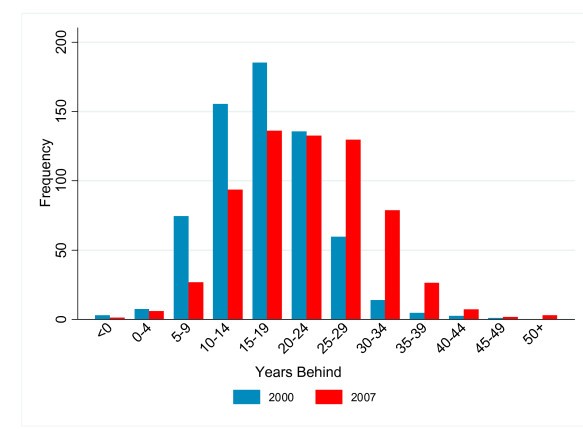 Falling Behind: Life Expectancy in US Counties from 2000 to 2007 in an International Context Falling Behind: Life Expectancy in US Counties from 2000 to 2007 in an International Context 
SCHOLARLY ARTICLE , Population Health Metrics 2011 9:16 This study uses mortality data from 2000 to 2007 to assess disparities in life expectancy across US counties. Life expectancy rates for counties are compared to the life expectancies across nations in 2000 and 2007. |
 |
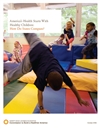 Family Income Impacts Children's Health Family Income Impacts Children's Health 
NEWS ARTICLE by Steven Reinberg, U.S. News & World Report, onREPORT by the RWJF Commission to Build a Healthier America, October 2008 Reinburg's article provides an overview of the Commission's 2008 report, America's Health Starts With Healthy Children: How Do States Compare?, which examines the health of children from different socioeconomic backgrounds in each state to document how healthy our nation's children are now and how healthy they could be if we as a nation were realizing our full health potential. |
 |
 Food Price Inflation Changes How We Shop Food Price Inflation Changes How We Shop 
NEWS ARTICLE by Alan Scher Zagier, Associated Press, March 31, 2008 The worst case of food inflation in nearly 20 years has more Americans giving up restaurant meals to eat at home. We're buying fewer luxury food items, eating more leftovers and buying more store brands instead of name-brand items. |
 |
 For tribes, traditions may be key to a healthier future For tribes, traditions may be key to a healthier future 
NEWS ARTICLE by Mary Annette Pember, The Washington Post, 2002 Pember looks at efforts in the Ho-Chunk (or Winnebago) tribe of North Dakota to use traditions to counteract fatalism and fight diabetes.
replicas de relojes |
 |
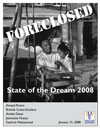 Foreclosed: State of the Dream 2008 Foreclosed: State of the Dream 2008 
REPORT, United for a Fair Economy, January 2008 In this year's report for Martin Luther King, Jr. Day, United for a Fair Economy found that the subprime lending crisis is causing the greatest loss of wealth to people of color in modern US history. They also estimate the difference in losses due to racial bias. The report details how and why the damage occurred, and offers solutions for what can be done. |
 |
 Free lunch isn't cool, so some students go hungry Free lunch isn't cool, so some students go hungry 
NEWS ARTICLE - New York Times, March 1, 2008 Lunchtime “is the best time to impress your peers,” said Lewis Geist, a senior at Balboa and its student body president. Being seen with a subsidized meal, he said, “lowers your status.”
San Francisco school officials are looking at ways to encourage more poor students to accept government-financed meals, including the possibility of introducing cashless cafeterias where all students are offered the same food choices and use debit cards or punch in codes on a keypad so that all students check out at the cashier in the same manner... |
 |
 From Disparity to Difference: How Race-Specific Medicines May Undermine Policies to Address Inequalities in Health Care From Disparity to Difference: How Race-Specific Medicines May Undermine Policies to Address Inequalities in Health Care 
SCHOLARLY ARTICLE by Jonathan Kahn, Southern California Interdisciplinary Law Journal, 2005 On June 23, 2005, the U.S. Food and Drug Administration (FDA) formally approved the heart failure drug BiDil to treat heart failure in self-identified black patients. The drug itself is not actually new; it is merely a combination of two generic drugs that have been used to treat heart failure for over a decade. BiDil's newness derives primarily from its public presentation as the world's first ethnic drug.
This analysis begins with a consideration of the race-specific clinical trials that preceded the FDA approval and then moves on to elaborate upon some of the broader implications of BiDil in the context of genomic medicine and the politics of heath care. It briefly relates the story of how law and commerce played a central role in the emergence of BiDil as an ethnic drug. Then it explores the strategic reification of race as genetic in the context of BiDil and connects the drug to larger issues concerning genetics and the politics of difference in health care and perhaps beyond.
|
 |
 From Neurons to Neighborhoods: The Science of Early Childhood Development From Neurons to Neighborhoods: The Science of Early Childhood Development 
REPORT from the National Research Council and Institute of Medicine Committee on Integrating the Science of Early Childhood Development How can we use our burgeoning knowledge to assure the well-being of all young children, for their own sake as well as for the sake of our nation? Drawing from new findings, this book presents important conclusions about nature-versus-nurture, the impact of being born into a working family, the effect of politics on programs for children, the costs and benefits of intervention, and other issues. The committee issues a series of challenges to decision makers regarding the quality of child care, issues of racial and ethnic diversity, the integration of children's cognitive and emotional development, and more.
The full text of this report is available free online. |
 |
 From Womb to Tomb From Womb to Tomb 
RADIO SHOW TRANSCRIPT, Stephen Bezruchka, Alternative Radio, April 2005 Bezruchka explains that an increasing stratification between the rich and the poor plays a major role in the United States' decline in health and life expectancy rankings over the last five decades. Life spans and infant mortality rates depend very much on the hierarchal structure of a society. And new research shows that half of what influences our health as adults is largely determined before the age of five. What can we learn from other countries whose citizens live longer and healthier lives?
The above link opens a pdf of the transcript. Audio of this and other radio pieces by Bezruchka are available at Alternative Radio. Other articles and presentations by Bezruchka are available in the Population Health Forum's Resource Library. |
 |
 Gap in Life Expectancy Widens for the Nation Gap in Life Expectancy Widens for the Nation 
NEWS ARTICLES by Robert Pear, New York Times, March 23, 2008 New government research has found “large and growing” disparities in life expectancy for richer and poorer Americans, paralleling the growth of income inequality in the last two decades. |
 |
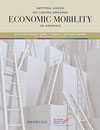 Getting Ahead or Losing Ground: Economic Mobility in America Getting Ahead or Losing Ground: Economic Mobility in America 
REPORT by the Economic Mobility Project, Feb 2008 While the American Dream remains a unifying tenet for an increasingly diverse society, it may be showing signs of wear. Growing income inequality and slower economic growth suggest that now is an important moment to review the facts about opportunity and mobility in America and to attempt to answer the basic question: Is the American Dream alive and well?
This volume, authored by a team of scholars at the Brookings Institution, is one in a series of major research products that aims to further enlighten the public dialogue on economic opportunity.
|
 |
 Getting Laid-Off May Lead to Early Death -- But There Are Ways to Cushion the Severe Health Impact of Job Loss Getting Laid-Off May Lead to Early Death -- But There Are Ways to Cushion the Severe Health Impact of Job Loss 
NEWS ARTICLE, AlterNet, July 2009 Considering the effects of the current recession on health, the article looks at recent research that shows negative health outcomes for those who have lost their jobs and had trouble finding new ones, those worried about job insecurity, and even those who found have found employment again after a layoff.
|
 |
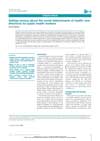 Getting serious about the social determinants of health: new directions for public health workers Getting serious about the social determinants of health: new directions for public health workers 
SCHOLARLY ARTICLE, Dennis Raphael, Promotion & Education, 2008 Though evidence indicated that compared to other developed nations Canada's health profile is mediocre and its public policy environment increasing unsupportive of health, the public health sector continues to focus on replica horloges lifestyle issues. Much of this has to do with Canada being identified as being driven by a liberal political economy. Raphael explores reasons for Canada's neglect of structural and public policy issues and outlines ways by which public health workers in Canada and elsewhere can help to shift policymakers and the general public's understandings of the determinants of health. |
 |
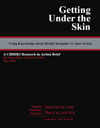 Getting Under the Skin: Using Knowledge about Health Inequities to Spur Action Getting Under the Skin: Using Knowledge about Health Inequities to Spur Action 
RESEARCH-IN-ACTION BRIEF, Charles Hamilton Houston Institute for Race and Justice, Harvard Law School, 2009 "This brief has two purposes. The first is to translate knowledge from the so-called “social determinants of health” arena into a useable form. The second purpose is to explore how to best use this knowledge to lobby for, and create policy and programming changes on the ground in, communities of concentrated disadvantage."
|
 |
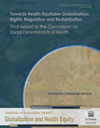 Globalization (pdf) Globalization (pdf) 
REPORT from the WHO Commission on the Social Determinants of Health, July 2007 This report examines how globalization’s dynamics and processes affect health outcomes: trade liberalization, integration of production of goods.
This is an interim report, submitted by the Globalization Knowledge Network to develop the Commission's final report in May 2008. |
 |
 Got Tradition? Got Tradition? 
NEWS ARTICLE by Daisy Hernandez, Colorlines, 2005 An excellent article about Tohono O'odham photographer and artist Terrol Dew Johnson and the organization he co-founded, Tohono O'odham Community Action, which seeks to improve health by helping people re-establish their ties to traditional culture.
|
 |
 Guide to Health Impact Assessment: A Policy Tool for New Zealand Guide to Health Impact Assessment: A Policy Tool for New Zealand 
REPORT from the Public Health Advisory Committee, 2005 Health impact assessment (HIA) is a formal approach used to predict the potential health effects of a policy, with particular attention paid to impacts on health inequalities. It is applied during the policy development process in order to facilitate better policy-making that is based on evidence, focused on outcomes and includes input from a range of sectors. This Guide is for use – largely but not exclusively – by policy-makers in sectors other than health. Those likely to be affected by policy may also use it. We recommend that people who are using this Guide, or HIA for the first time, should attend an HIA training course and/or work alongside an experienced HIA practitioner. |
 |
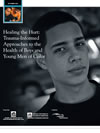 Healing the Hurt: Trauma-Informed Approaches to the Health of Boys and Young Men of Color Healing the Hurt: Trauma-Informed Approaches to the Health of Boys and Young Men of Color 
The California Endowment The project is founded on the understanding that trauma and adversity have a direct impact on health. The authors also understand that African-American and Latino young men are disproportionately affected by various forms of trauma and adversity including violence, poverty, incarceration, lack of access to health care, marginalization and low social status.
The project has two main goals:
- To identify, analyze and synthesize existing knowledge about the health status of boys and men of color across disciplines, and interpret it through the lens of trauma.
- To identify promising trauma-informed models and approaches to addressing the health needs of boys and young men of color.
|
 |
 Health a Challenge for Hispanic Immigrants Health a Challenge for Hispanic Immigrants 
NEWS ARTICLE by Randolph E. Schmid, Associated Press, 2006 A National Academy of Sciences report calling for more programs to improve educational outcomes among the Hispanic population corresponds with the release of new data from the Centers for Disease Control about Latino health. The longer Latinos are here, the worse their health becomes. Lower educational attainment appears to be one reason.
Swiss automatic Replica Watches UK at affordable prices for men and women.
With Swiss reliable movements, top canada cheap replica watches for men and women are on hot sale. |
 |
 Health and healing among American Indians Health and healing among American Indians 
NEWS ARTICLE in Explore: The Journal of Science and Healing An interview with Dr. Donald Warne, one of the experts featured in Bad Sugar, Episode 3 of UNNATURAL CAUSES.
This article is only available through subscription.
|
 |
| « Prev 1 | 2 | 3 | 4 | 5 | 6 | 7 | 8 | 9 | 10 | 11 | 12 Next » |
|




